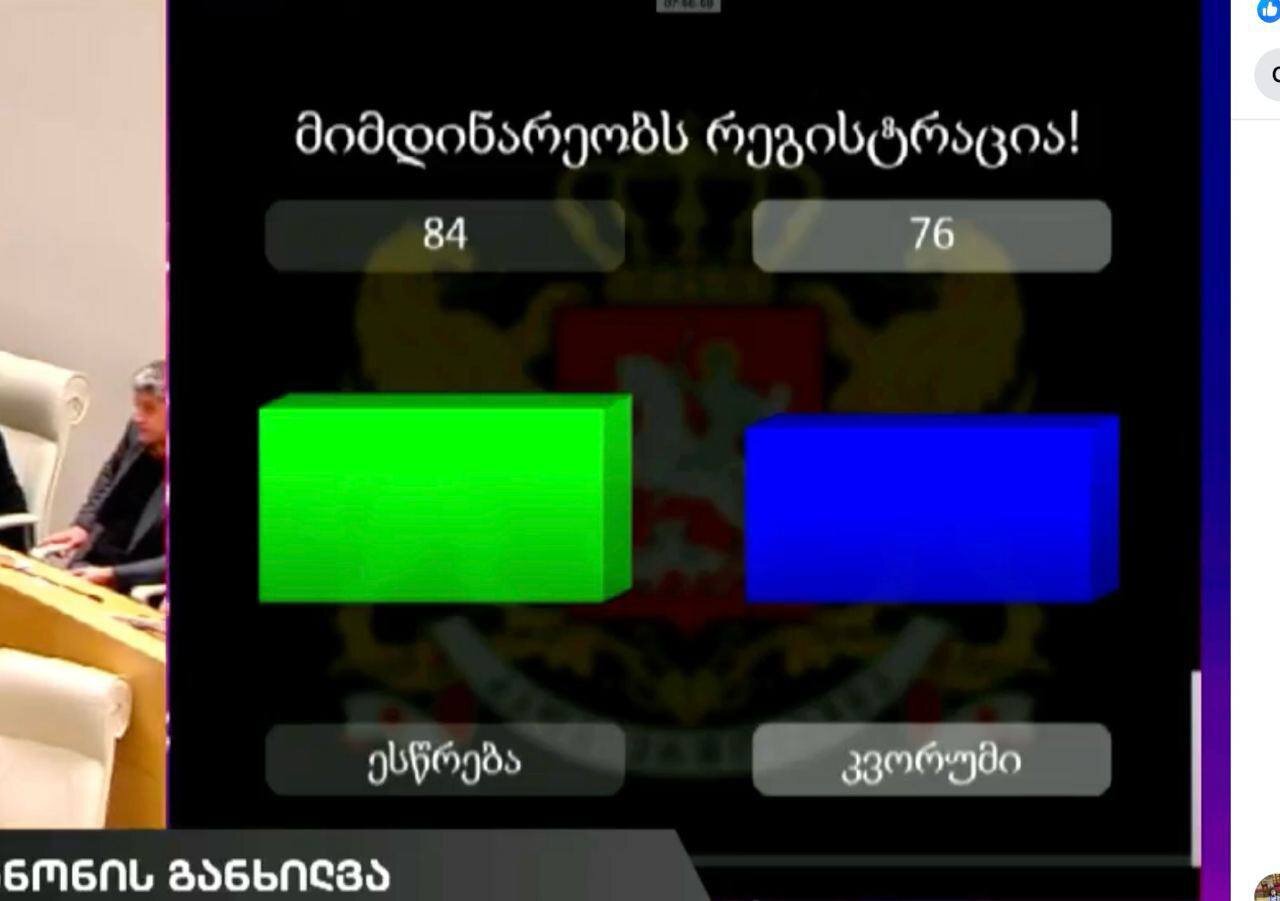The Parliament of Georgia overrode the President’s veto on the Foreign Agents Bill

| Today, the Parliament of Georgia canceled the veto of the president of this country regarding the law of foreign agents. |
reported by Mehr News Agency According to Rianousti News Agency, the Parliament of Georgia canceled the veto of the president of this country on the law of foreign agents with the majority of votes.
Voting results show that the Georgian parliament supported the original version of the law on foreign agents after overcoming the veto.
According to Sputnik news agency, this law will come into force the next day after it is published on the website of the Georgian legislature.
Then the law must be signed by President Salome Zurabishvili, and in case of refusal, this law will be signed by the Speaker of the Parliament. Previously, Salome Zarobishvili had vetoed this bill.
On Saturday, May 29, this year, the Office of the President of Georgia announced his veto of the “Foreign Factors” bill.
“Salome Zurabishvili”, the president of Georgia, said in a statement in this regard that she vetoed the bill on “foreign factors” that was approved by the parliament.
He had previously threatened to veto this bill if approved by the parliament of his country.
The ruling party of Georgia, which holds the majority of the country’s parliament, had announced that this bill is necessary for the transparency of the activities of non-governmental organizations and to prevent the “influence of foreign agents”.
On the other hand, opponents and Western countries consider this bill similar to a law in Russia that helped the government of this country to prevent the activities of many non-governmental organizations whose budgets were partly or entirely funded from outside the borders of Russia. stop.
The approval of this law took place after weeks of intense and widespread protests in Georgia, which were accompanied by clashes between protesters and the police, as well as the arrest of some.
Protests in which tens of thousands of people came to the streets and expressed their anger and dissatisfaction with this bill.
This decision, which was taken by the ruling party of Georgia called “Georgian Dream” despite the opposition of the president, opponents and civil society, was a controversial bill and led to a deep gap between the involved parties.



